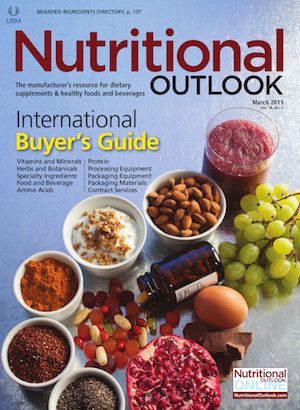Editor: New York Attorney General Case Requires Strong Response, Supplement Leaders Say
Will industry’s messaging be heard in the fight against New York Attorney General Eric Schneiderman?

* Updated 2/24/15 3:00 PM PST
The supplements industry came out swinging in February over New York Attorney General Eric Schneiderman’s allegations that dietary supplements aren’t meeting label claims.
Schneiderman’s office sent cease-and-desist letters, followed by subpoenas for health claims substantiation, to four retail giants-Walmart, Walgreens, Target, and GNC-ordering them to pull specific herbal supplements from shelves as part of what it calls an ongoing investigation. His office also later ordered the supplement manufacturers themselves to provide documentation on their testing and quality control procedures, as well as substantiation of “gluten-free” and “hypoallergenic” claims.
Schneiderman’s sudden public announcement hit the mark, cuing a scene that’s become all too familiar these days: mainstream media jumped on the negative news, and industry responders fired back. Class action lawsuits followed.
But while the supplements industry has dealt with its share of critics in recent years, some of the most vocal have joined industry leaders in challenging the attorney general’s use of DNA testing in the investigation. They state that the AG most likely misused DNA analysis to test finished products when in fact most normal processing conditions such as extraction are expected to destroy DNA anyway by the time finished product gets to the shelf. Harvard Medical School assistant professor Pieter Cohen, who in the past has vocally come down on existing supplement regulations, told The New York Times that he questioned whether DNA testing was used appropriately here.
At the time this article went to press, supplement makers appeared to have a strong basis for argument in this case. The attorney general’s lack of transparency thus far-refusing to make public the specific details of the tests performed-casts a shadow over the credibility of the investigation as a whole. Industry sources report that it does not appear that any other state attorney generals nor U.S. lawmakers have followed Schneiderman’s lead by instigating their own investigations.
Dan Fabricant, CEO of the Natural Products Association (NPA; Washington, DC), says he wouldn’t expect the attorney general to admit wrongdoing. Instead, he and others urge the dietary supplements industry to look beyond just the actions of Attorney General Schneiderman and use this case as a reminder that the dietary supplements industry should, in Fabricant’s words, “guard against this sort of thing for the future.”
A preemptive, consolidated public relations strategy, so to speak, is becoming a necessity for an industry that has weathered increased criticism. The dietary supplements industry won’t win this fight by trying to explain to consumers that DNA testing was misapplied, members say. “I just don’t think that’s the kind of storyline that will resonate with our consumers,” says Steve Mister, president and CEO of the Council for Responsible Nutrition (CRN; Washington, DC). “For the most part, consumers don’t want to have to determine between DNA analysis and chemical analysis. They want to trust the brands that they buy.”
Instead, he and others say, this fight means loudly denouncing the New York attorney general’s investigation and keeping the lines of communication open with other attorney generals and lawmakers, underlining the message that regulators should focus on outliers, not responsible members of industry. New York resident and attorney Marc Ullman, who calls Schneiderman’s actions “a wasteful fishing expedition questioning substantiation of some of the most well-studied supplements on the market today,” also says this: “With so much low-hanging fruit-there are so many companies out there preying on vulnerable people, making outrageous claims-it’s inexcusable for the New York attorney general to go off on this path. As a taxpayer, I resent him spending my taxpayer money on this fiasco.”
Success and criticism grow hand in hand, and for the supplements industry, figuring out how best to manage both is obviously key to survival. That means fighting back forcefully against unmerited attacks, Fabricant says. “If there’s a real concern, we’re happy to have this scrutiny, but if they’re not going to be transparent, then this just seems like a smear campaign and that’s unacceptable.”
Mister says that this particular case requires strong industry pushback. “This is a case where the attorney general of New York is going right at the heart of the industry at some of the very mainstream ingredients by some very large retailers.”
“Unless there’s an outpouring of [criticism] against this sort of action, then I think people can expect it to happen again in the future,” Fabricant says.
* Updated: Both CRN and NPA have launched microsites in response to the New York attorney general's actions. CRN's site contains more information on the case and expert opinions on DNA testing. NPA is encouraging members to take part in grassroots initiatives demanding that the New York attorney general release his report.
Also read:
DNA Testing Is Valuable, Firm Says, Following Latest Dietary Supplement Controversy
Jennifer Grebow
Editor-in-Chief
Photo © iStockphoto.com/kemalbas
HHS announces restructuring plans to consolidate divisions and downsize workforce
Published: March 27th 2025 | Updated: March 27th 2025According to the announcement, the restructuring will save taxpayers $1.8 billion per year by reducing the workforce by 10,000 full-time employees and consolidating the department’s 28 divisions into 15 new divisions.











